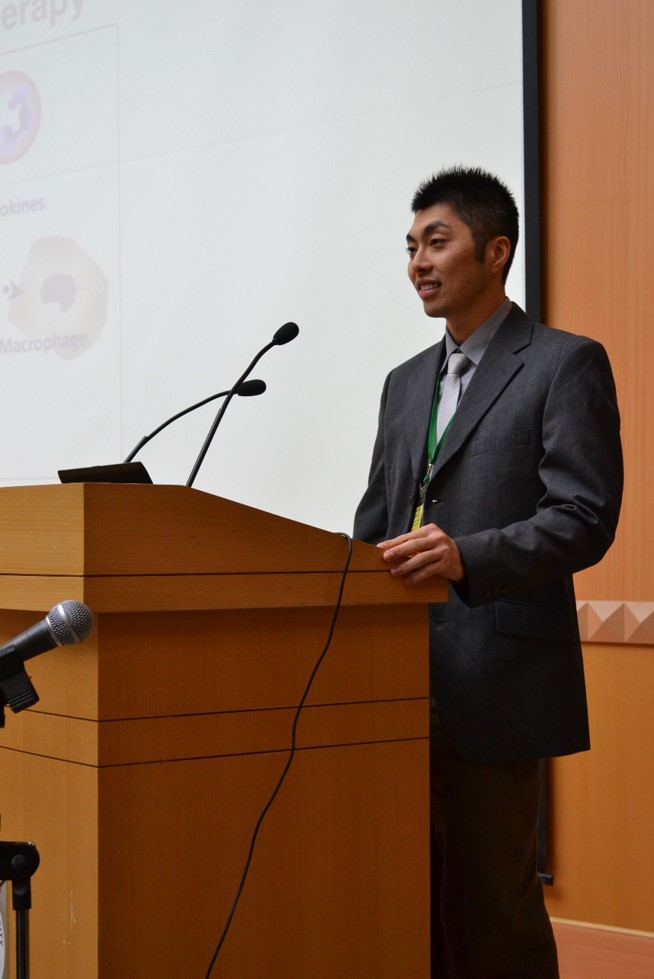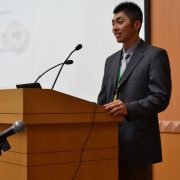Opportunities for research:
TMU’s ALDH2 advantage

With evidence growing about the health risks related to a genetic mutation that affects one third to one half of people across Asia, Taipei Medical University is moving forward to become a leader in ALDH2 research.
We recently discussed the institution’s direction with Dr. Alex Wu, an associate professor at TMU’s Center for Translational Medicine and cancer researcher.
Dr. Wu is an expert in mouse tumor models and has research interests in stem-like cancer cells and isolating anti-cancer compounds from natural plant sources. Over the past year he has co-authored papers on identifying targets for anti-cancer drug development for lung, liver, brain, and oral cancers.
Now Dr. Wu is interested in the relationships between ALDH2 deficiency and cancers of the esophagus, head and neck, and liver. “In Asia a large cohort of people are susceptible to these cancer risks so there is definitely a need for more research,” he said.
Dr. Wu has begun mimicking ALDH2 deficiency in liver cancer cells. Using siRNA to remove the gene, he is investigating how reductions in enzymatic activity of ALDH2 can lead to more malignant types of cancer and is interested in how the deficiency might affect reactions to chemotherapy.
Dr. Wu’s cell line is not the only new avenue for research at TMU. Mice bred with ALDH2 deficiency were brought to Taiwan late last year by Dr. Chen Che-hong (also in this edition), and will be available for biological investigations at TMU’s animal facilities.
In addition to cancer research, new links are being investigated between the ALDH2 deficiency mutation and other diseases.
With the support of President Lin for TMU’s Center for Neurodegenerative Disease and the neurodegenerative medicine program that will come on line this year, research into neurodegenerative diseases such as Alzheimer’s, Parkinson’s, and dementia is set to increase. “Neurodegenerative disease will be a focus for the next few years, so I think the addition of this ALDH2 deficiency component will be great”, said Dr. Wu.
With access to the ALDH2 modified liver cancer cell line, ALDH2 deficient mice, and new facilities for neurological research, Taipei Medical University is positioning itself as a global leader in ALDH2 deficiency research for both cancer and neurodegenerative diseases.
For interviews or a copy of the paper, contact Office of Global Engagement via global.initiatives@tmu.edu.tw.










